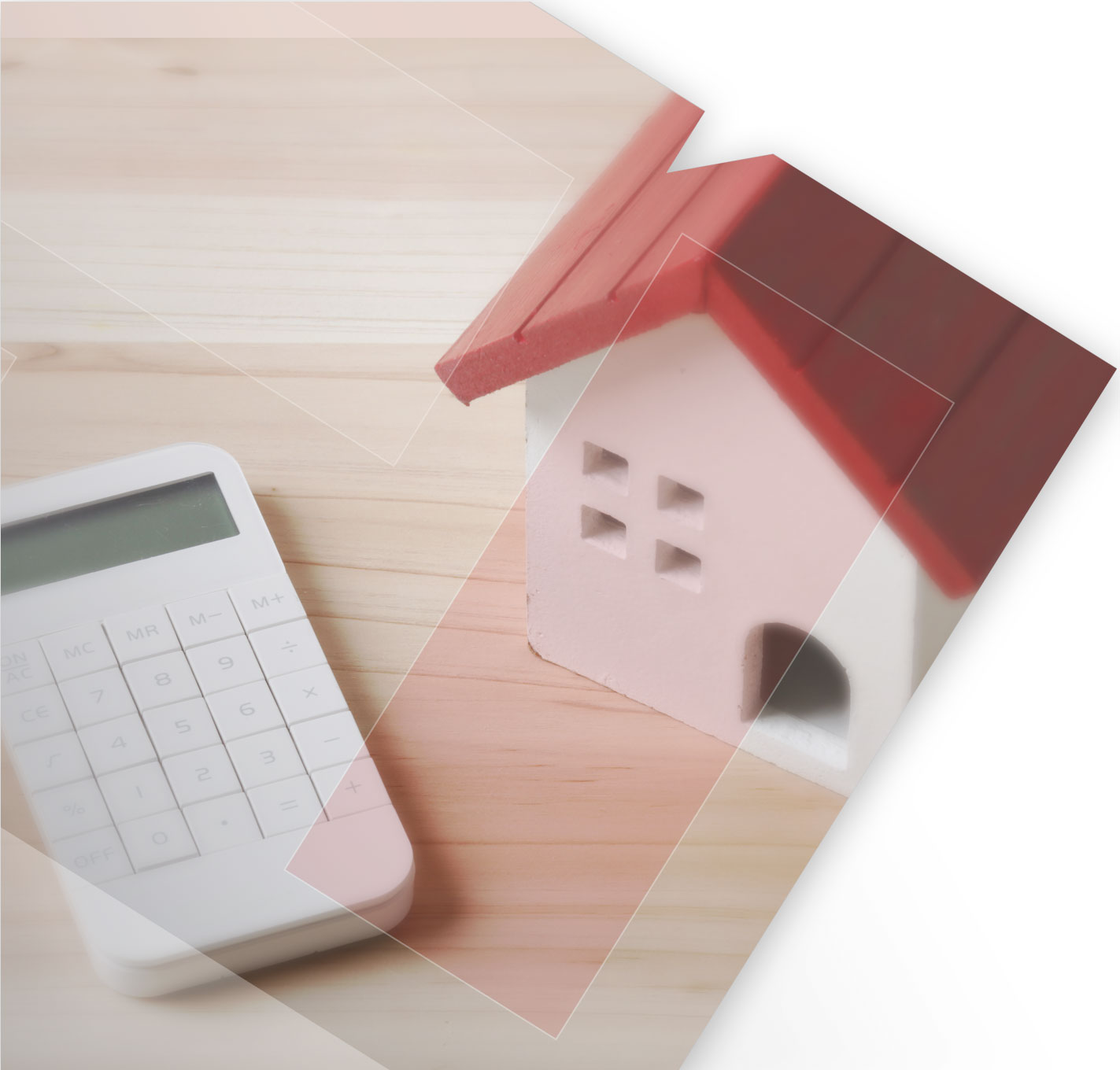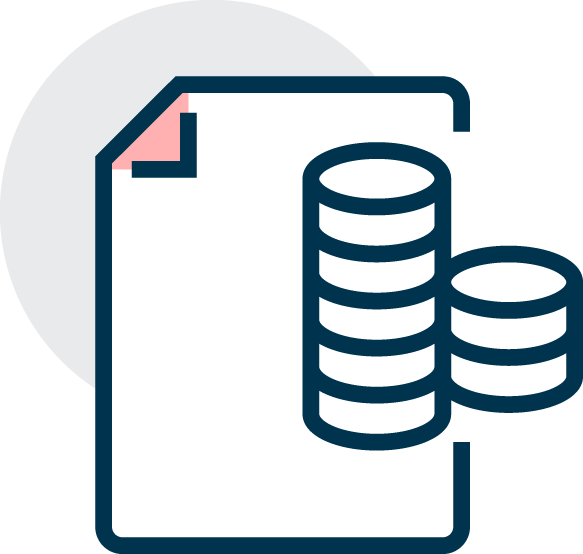Owning a house is every individual’s dream. To encourage citizens to invest in a property, the Government provides various tax benefits on home loan under the Income Tax Act of 1961 (“the Income Tax Act”). It is important to be aware of all the home loan tax benefits as it can help you save a significant amount of your tax payments.
A home loan comprises both principal repayment and interest payments. Tax deductions can be availed under both these categories under Section 80C and Section 24(b) of the Income Tax Act respectively.
Home loan is eligible for tax benefits as follows-
| Section | Nature of Tax Deduction | Maximum Deduction (INR) |
|---|---|---|
| Section 80C | Tax Deduction on Principal Repayment | Up to Rs.1,50,000 |
| Section 24B | Tax Deduction on Interest Paid | Up to Rs.2,00,000 |
| Section 26 read with Section 24 | Tax Deduction on Home Loan for Joint Owners | Up to Rs.2,00,000 respectively for each of the joint borrowers who are co-borrowers |
 Tax deductions on
Tax deductions on
principal repayment Under Section 80C
Under section 80(c) of the Income Tax Act, tax deduction of a maximum amount of up to Rs 1.5 lakh can be availed per financial year on the principal repayment portion of the EMI. This deduction can only be availed after the construction of the residential house property is complete. Note: if the property is sold within 5 years from the end of the financial year in which possession of such property is obtained, this benefit will be reversed..
 Tax Deduction for stamp duty and
Tax Deduction for stamp duty and
registration charges Under Section 80C
Tax deduction under section 80(c) of the Income Tax Act can be claimed for stamp duty and registration fees as well but it must be within the overall limit of Rs 1.5 lakh applied to principal repayment. This benefit can be availed regardless of whether you take a home loan or not. Furthermore, this benefit can only be availed in the year these expenses are incurred.
 Tax Deduction on Interest Paid on Home Loan Under Section 24B
Tax Deduction on Interest Paid on Home Loan Under Section 24B
You can avail deduction on the interest paid on your home loan under section 24(b) of the Income Tax Act. For a self-occupied house, the maximum tax deduction of Rs. 2 lakh can be claimed from your gross income annually, provided the construction/ acquisition of the house is completed within 5 years.
Also, in case of a self-occupied house, the loan must be borrowed for acquisition or construction only (i.e. not for repair, renewal, reconstruction). In case the construction/acquisition period exceeds the stipulated time frame, you can claim deductions on interest of home loan for purchase, construction, repair, renewal or reconstruction only up to Rs. 30,000 annually. On the other hand, if you have let out your property on rent, the entire amount of interest paid on your home loan for purchase, construction, repair, renewal or reconstruction can be claimed as tax deduction; additionally, there is no time limit stipulated within which the construction of the property should be completed. However, it is significant to note that in a given year set-off of loss under the head ‘income from house property’ against any other head of income has been restricted to Rs. 2 lakh and the unabsorbed loss, if any, is allowed to be carried forward for set-off in subsequent years in accordance with the provisions of the Income Tax Act.
 Tax Deduction on Interest Paid for Under Construction Property
Tax Deduction on Interest Paid for Under Construction Property
If you buy an under-construction property and pay the EMIs, you can claim interest on your housing loan as deduction after the construction gets completed. Income Tax Act allows to claim a deduction of both the pre-construction period interest and post-construction period interest. Interest pertaining to pre-construction period is allowed as deduction in five equal annual instalments, commencing from the year in which the house property is acquired or constructed. Thus, total deduction available to a taxpayer under Section 24(b) on account of interest is 1/5th of interest pertaining to pre-construction period (if any) + interest pertaining to post construction period (if any).

 Tax Deduction for joint home loan
Tax Deduction for joint home loan
If a home loan is taken jointly, each borrower can claim deduction on home loan interest up to Rs 2 lakh under Section 24(b) and tax deduction on the principal repayment up to Rs 1.5 lakh under Section 80C. This doubles the amount of deductions available when compared to a home loan taken by a single applicant. It is however required that both the applicants should be co-owners of the property and both service the EMIs.
 Tax benefits on
Tax benefits on
second Home Loan
You can get the above tax benefits if you take a second home loan to buy another property however the aggregate amount of deductions is subject to the respective caps mentioned above. As per the Union Budget of 2019, the Government has provided further incentives for investing in a house property. Earlier, only one property could be treated as self-occupied, and a second property was deemed to be let out and therefore, notional rent was calculated and taxed as income. However, now even a second property can be considered as a self-occupied property.
Although a home loan comes with a financial cost, using your loan smartly can greatly help in reducing your financial burden and help you maximise your tax savings
Frequently Asked Questions
Does home loan protection insurance provide tax benefit?
You can claim tax deduction under section 80C on the premium paid for home loan protection insurance plan. The deduction is not allowed when you borrow the premium money from your lender and repay via EMIs.
Who is eligible to claim tax deductions on housing loans?
Tax deduction can be claimed by the owner of the property. If a home loan is taken jointly (such as by a spouse), each borrower can claim deduction on home loan interest in the ratio of their ownership and provided both are servicing the loan.
If I construct a house and sell it after a few years, can I claim tax deduction?
If you sell the house within 5 years from the end of the financial year in which possession of such property is obtained, as per Section 80C, the tax deduction with respect to repayment of principal amount of the loan claimed will be reversed. The deduction of the interest payment will remain unchanged (i.e. there is no similar provision for reversal of interest deduction claimed under Section 24(b)).
What is the maximum tax benefit on home loan?
The maximum tax deduction for a housing loan as per different sections in Income Tax Acts is listed below
- Up to Rs 2 lakh under Section 24(b) for self-occupied home
- Up to Rs 1.5 lakh under Section 80C
Note: The information above is merely illustrative and educative in nature. Readers are advised not to rely on the same and seek independent advice from their tax consultant to compute the amount of tax deduction readers may be eligible for.
Home calculations made easy to help you plan your home
MISSED CALL
Give us a MISSED CALL for New Home Loan
- 09289200017



































